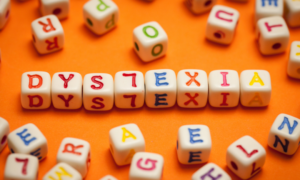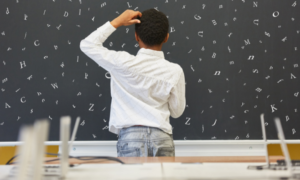
Dyslexia Definition and Causes
Dyslexia Definition and Causes – Dyslexia Definition
Dyslexia is a learning disorder characterized by problems with accurate or fluent word recognition, poor decoding, and inadequate spelling abilities. It also involves difficulty in reading due to problems with identifying speech sounds. Children with dyslexia may have average or above-average intelligence. However, they exhibit learning gaps. In reading and other language-related areas, the functional level of a child with dyslexia is usually below the grade level of their peers. Dyslexia manifests itself in many ways:
- Children have difficulty in learning how to match letters with their sounds, a process called decoding. This difficulty with making association influences a child’s reading abilities, ability to express themselves through words clearly, and fully understand what others mean when they speak.
- They struggle to learn phonics, i.e. difficulty in recognising and breaking down letters or segmenting words into smaller syllables. e.g. reads the word “doctor” as “do-ctor,” instead of “doc-tor,”
- They face difficulties in rhyming words and struggle to recognise simple sight words like “it”, “and”, “the”, etc.
- Processing and remembering information they see and hear can affect learning and the acquisition of literary skills.
- Reading, writing, spelling and word recognition; hence it is a language-based disability.

Dyslexia affects the way a child’s brain processes language-based information. Dyslexia may also influence areas such as coordination and organisation, making everyday tasks difficult. These difficulties that the child faces significantly interfere with their academic achievement and activities of daily life. As with all other learning disabilities, it is vital that before diagnosing a child with dyslexia, it is significant to rule out that the academic gap is not due to other factors, such as vision or hearing impairment, developmental delays, etc. Early identification, assessment and intervention is the key to positively manage dyslexia.
Dyslexia Definition and Causes – Causes of dyslexia
What causes a person to have dyslexia is still not completely clear. Causes of dyslexia are said to lie in both genetic and neurological factors. Dyslexia may run in families where parents of children with dyslexia also have dyslexia. Individual differences in the functioning of the brain are also some factors associated with dyslexia. Research shows that dyslexia happens because of the way the brain processes information. Brain scans show that people with dyslexia use different parts of their brain than those without it.
Many children with dyslexia have other learning and thinking differences, as well. It is common for children to have both dyslexia and ADHD, for instance. Anywhere from 20 to 40 per cent of children with ADHD also have dyslexia. Dyslexia is a lifelong problem that presents daily challenges. Still, treatment and support can significantly improve a child’s reading and writing skills, giving them a chance to succeed in their personal life and school or work.